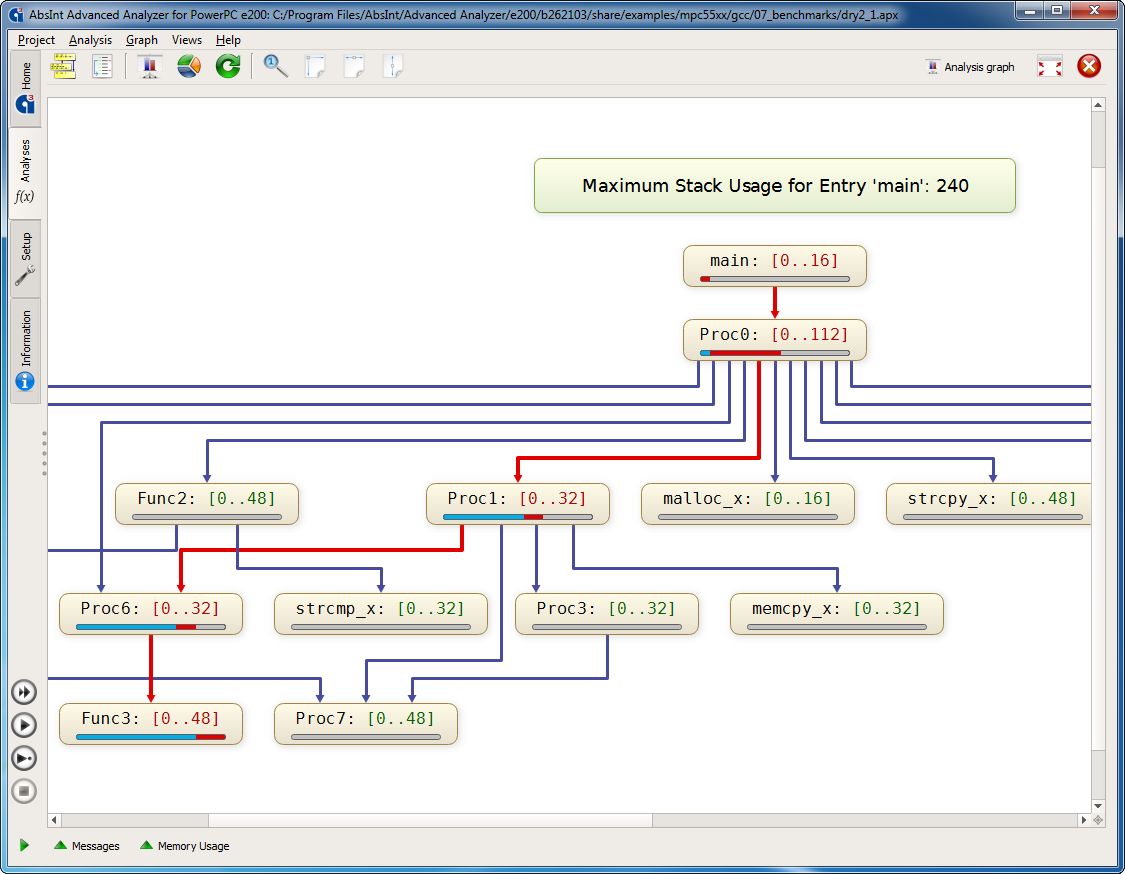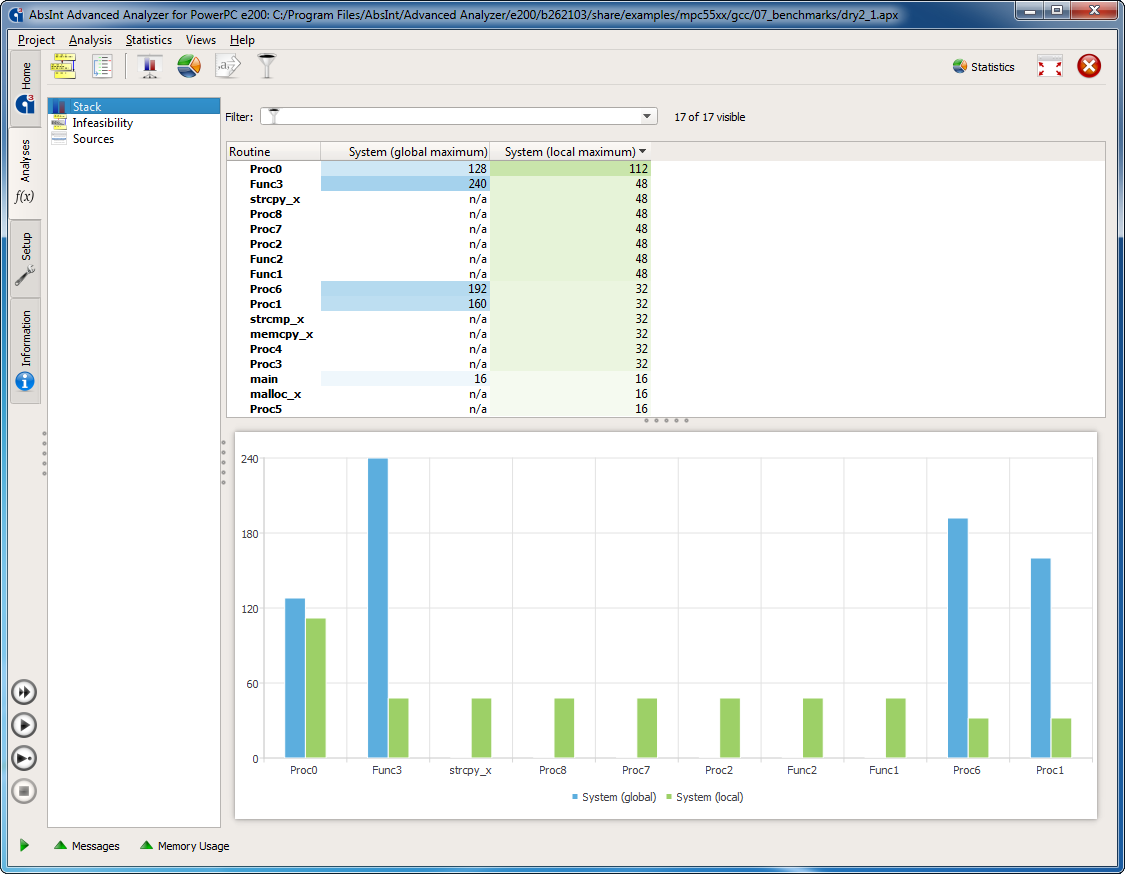StackAnalyzer automatically determines the worst-case stack usage of the tasks in your application. It lets you find any stack overflows, or formally prove the absence thereof.
Features
- Detailed and precise information on user-stack usage and system-stack usage by application tasks.
- Freely selectable entry points for the analysis. You can easily focus on any code parts of particular interest to you.
- Control-flow reconstruction directly from binary code. Potential flaws in the debug information will not confuse StackAnalyzer.
- Fully integrated, feature-rich graphical and textual viewers for control flow, analysis results, source code, assembly code, and configuration files.
- Customizable XML reports for documentation and certification.
- Optional ValueAnalyzer add-on for static analysis of register and memory cells, memory accesses and function calls.
- Seamless integration with other analysis tools from AbsInt (e.g. aiT for worst-case execution time analysis).
- Batch mode for easy integration with other tools, or into automated build processes.
Your benefits
- StackAnalyzer reduces the development effort and helps prevent runtime errors due to stack overflow.
- StackAnalyzer calculates the stack usage automatically. No testing or measuring required. The analysis results are valid for all inputs and any task execution.
- StackAnalyzer directly analyzes binary executables, exactly as they are executed in the final system.
- Using StackAnalyzer is essential in meeting current safety standards such as ISO 26262, DO-178B/C, IEC-61508, and EN-50128, where statically analyzing the stack usage is part of the architectural safety requirements.
Who uses StackAnalyzer?
Airbus France, in the development of safety-critical avionics software for several airplane types, including the A380.
Daimler, in many automotive software projects, including the powertrain control system of the new Actros truck.
Honda, in developing the FADEC software of a turbofan engine.
Vestas, to prevent stack overflow in their wind turbine control software.
AREVA, for verification of their safety-critical platform for testing, operating and troubleshooting nuclear reactors.
Continental, to avoid stack overflows in their airbag control systems.
OHB, in the development of onboard software for satellite platforms for communication and navigation.
u-blox, to avoid stack overflows at compile time and to increase the reliability of their controlling software.
MTU Friedrichshafen, to demonstrate the correctness of control software for emergency power generators in power plants.
Voor meer informatie : INDES_IDS BV stand 27


 Goede schakelkast ledverlichting
Goede schakelkast ledverlichting Mipot LoRa™ modules
Mipot LoRa™ modules
 Basisprincipes EMC afscherming in...
Basisprincipes EMC afscherming in...